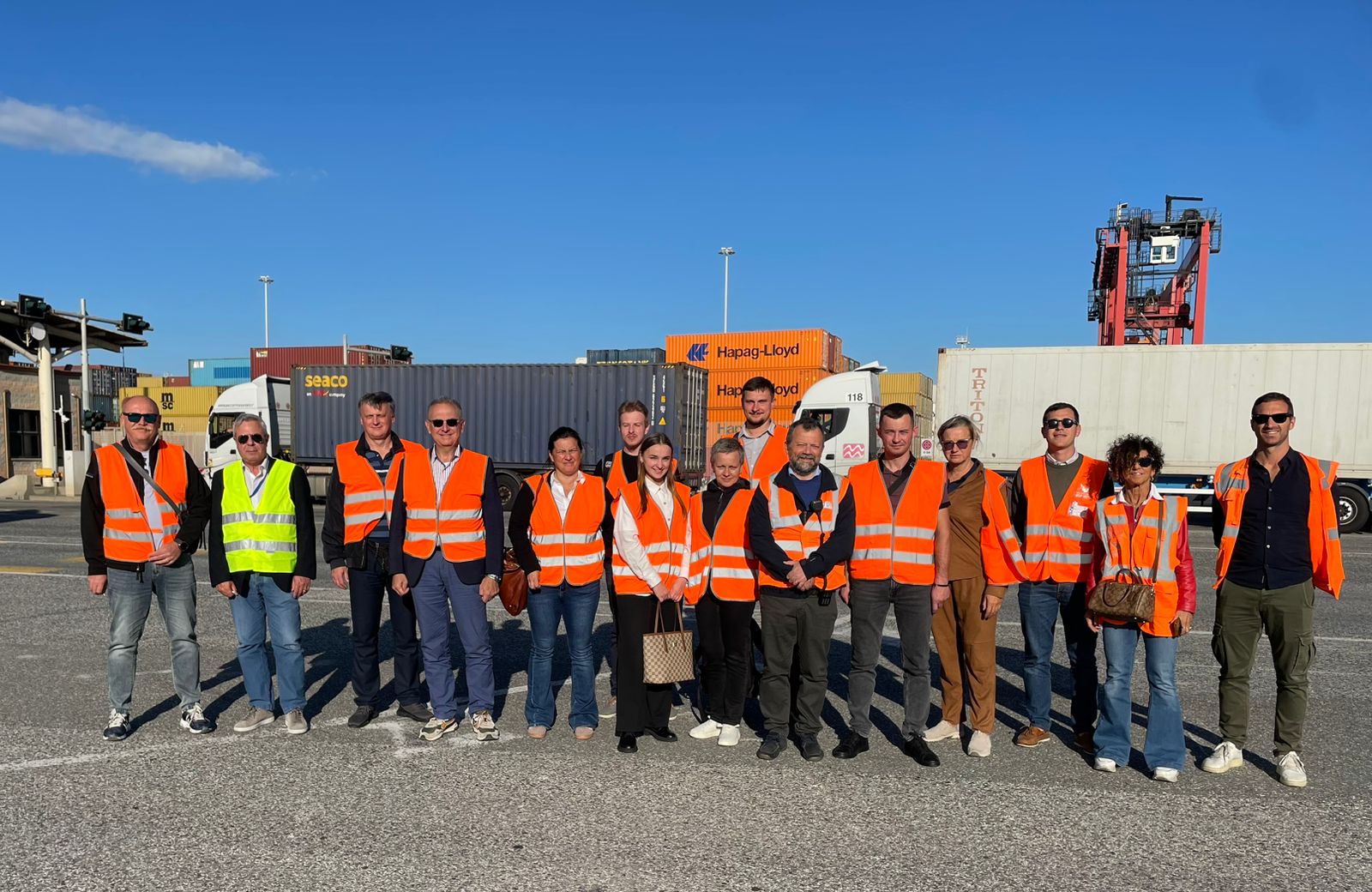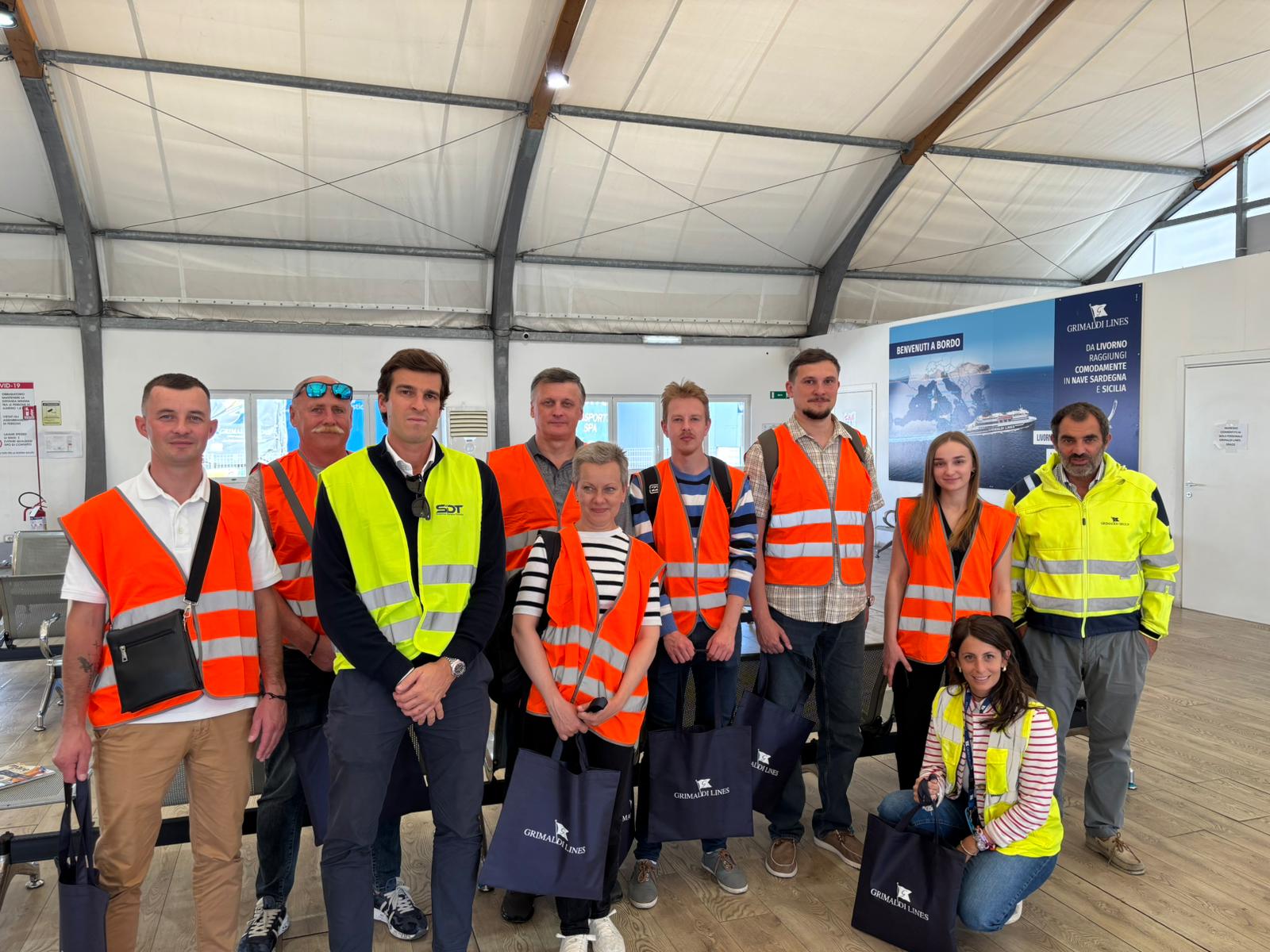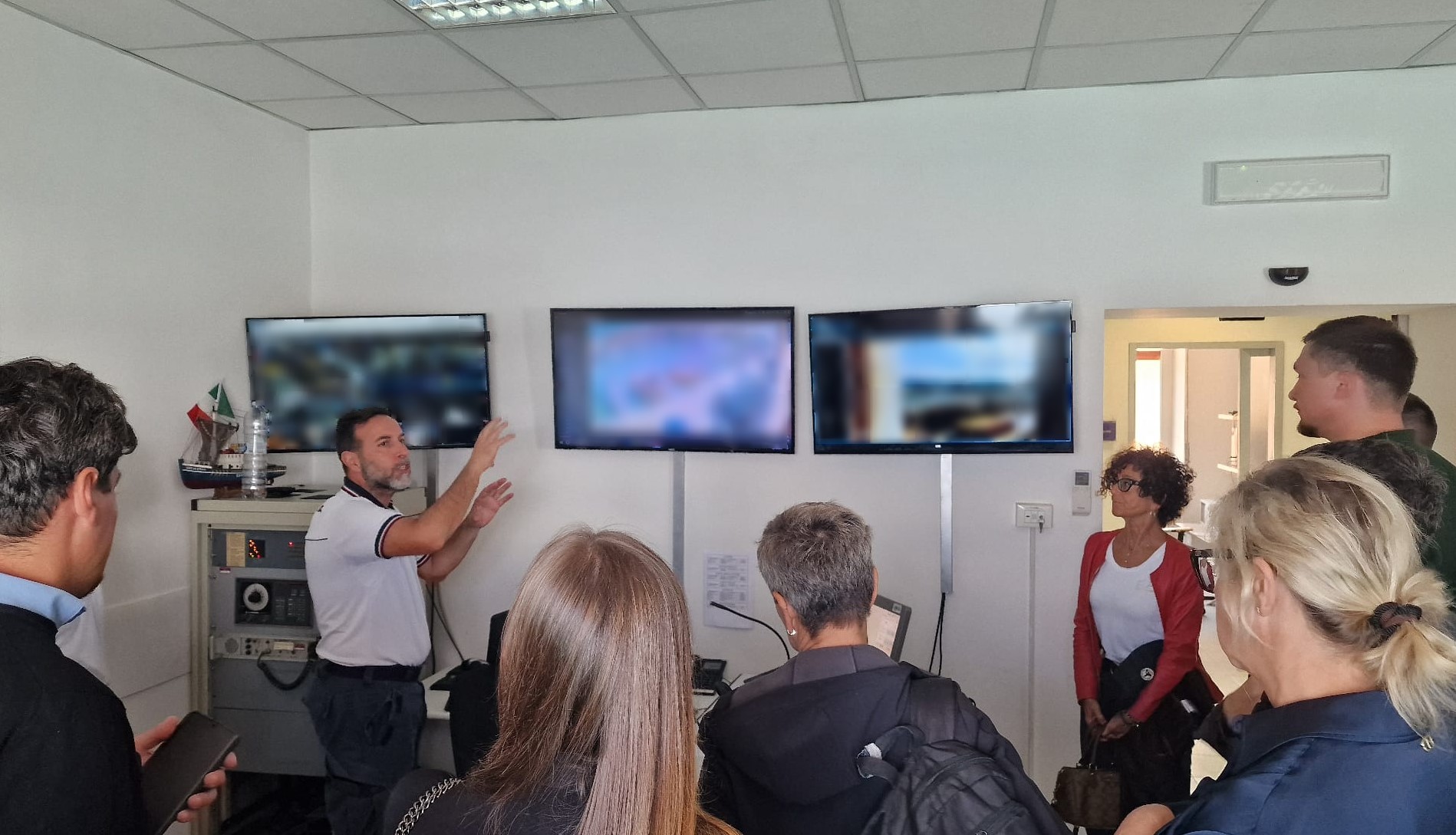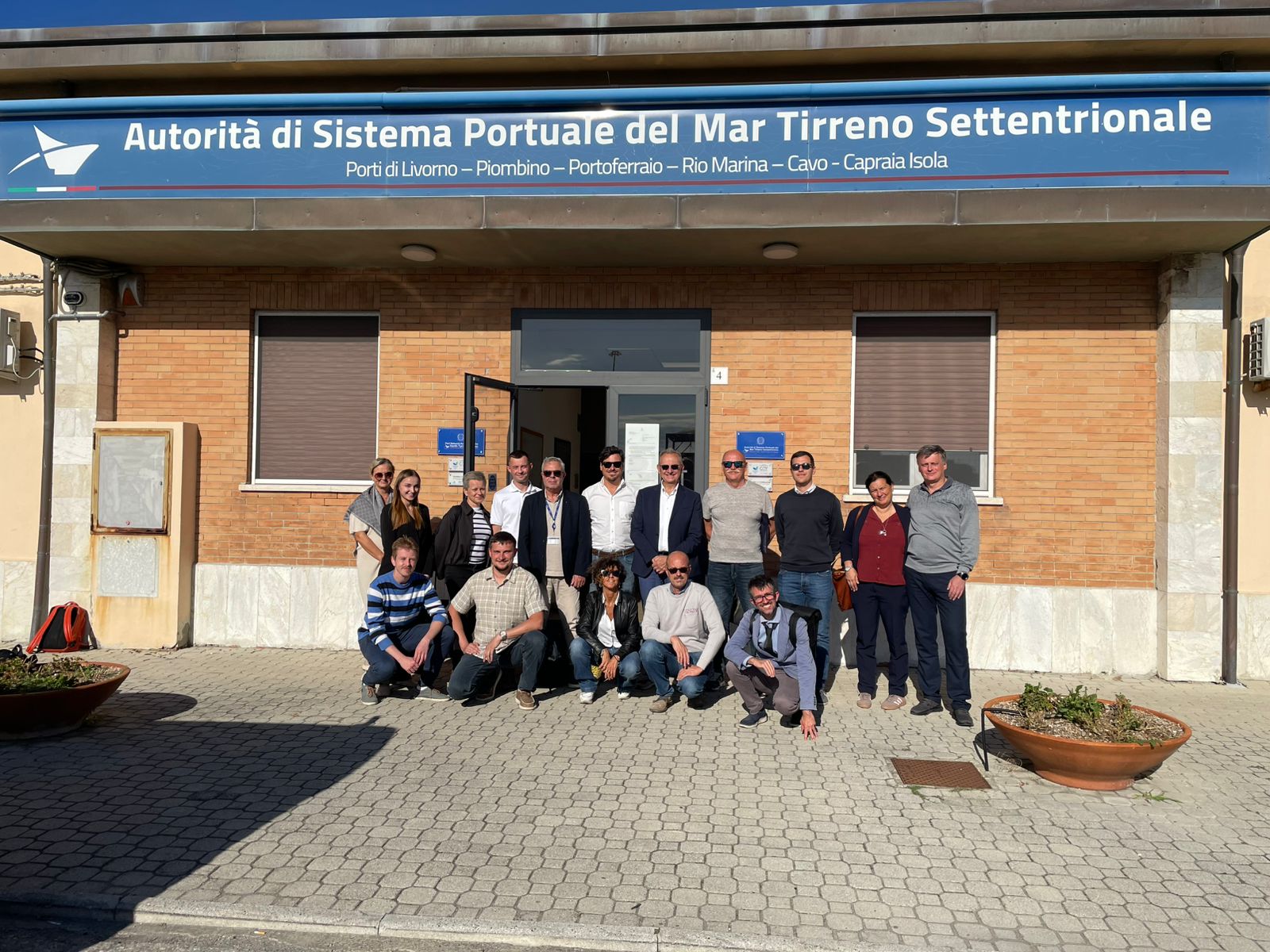Last week (29 September – 03 October), employees of the Shipping Administration, the Ministry for Development of Communities and Territories of Ukraine, the State Enterprise “Ukrainian Sea Ports Authority” and the State Enterprise “Classification Society Ukrainian Register of Shipping” visited Livorno, one of the largest ports of the Italian Republic.
This is already the fourth study visit under the European Union technical assistance Twinning Project “Institutional Support to the State Service for Maritime, Inland Waterway Transport and Shipping of Ukraine in the Implementation of the EU Acquis, Norms and Standards on Maritime Safety”.
On this occasion, representatives of the Ukrainian maritime sector had the opportunity to familiarise themselves with European practices of implementation of the International Ship and Port Facility Security Code. Known as the ISPS Code, this International Maritime Organization’s mandatory instrument was designed to ensure adequate security of ships, terminals, berths, and anchorages against terrorist threats or other acts of unlawful interference.
The opening ceremony was held at the North Tyrrhenian Sea Ports System Authority (AdSP-MTS) headquarters and attended by Rear Admiral Giovanni Canu, Harbour Master of Livorno and Coast Guard chief of Tuscany. The Italian side presented the city’s port infrastructure and its development projects, including large-scale construction of the new multifunctional Terminal Darsena Europa.
Main activities took place at the AdSP-MTS Training Centre. Experts from the Italian Coast Guard (Twinning Project partner) participated in sessions along with representatives of the port administration, as well as port security officer and his deputy, appointed for the Port of Livorno pursuant to the requirements of Directive 2005/65/EC of the European Parliament and of the Council.
The Ukrainian delegation studied the peculiarities of European legislation that clarifies and supplements the ISPS Code, as well as considered approaches of Italy and other EU Member States for its implementation. Furthermore, Ukrainian colleagues shared experience of how seaports operate in Ukraine with higher security levels set amidst russia’s full-scale aggression.
The visit programme went beyond the theoretical framework. Delegates were invited to several facilities at the Port of Livorno (cruise, ferry, cars, and two container terminals), where they learnt about the commercial activities of port operators and their security arrangements. Among the main topics of discussion were control of passengers’, vehicles’, and unauthorised persons’ movement, video surveillance, interaction between port facility security officers and personnel in charge, designation of restricted areas, as well as additional safety and security measures applicable to dangerous goods and containers.
Towards the end of the week, participants visited the Harbour Master’s headquarters. They had an opportunity to observe in real time how pre-arrival security information from ships intending to call at the Port of Livorno is processed. Provision of the vessel traffic services (VTS) off the Tuscany coast was also demonstrated.
The Ukrainian delegation extended its gratitude to the organisation team and involved port operators (Porto di Livorno 2000, Grimaldi Lines, CILP, Lorenzini & C) for a remarkably productive study visit, which once again highlighted the potential of cooperation between Italy and Ukraine in the field of maritime transport and merchant shipping.


